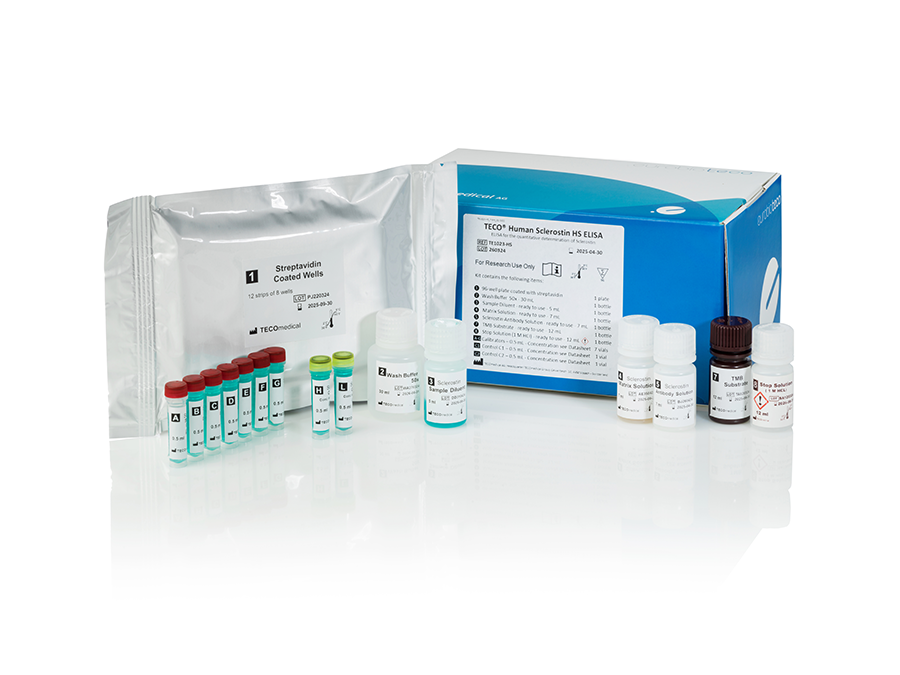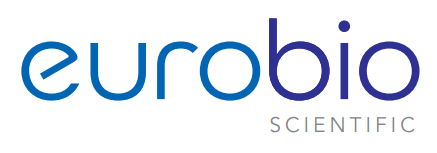TECO Sclerostin High Sensitive
Product Description

TECO® Human Sclerostin HS ELISA
The TECO® Human Sclerostin HS Enzyme Immunoassay for the quantitation of Sclerostin in human plasma and serum is a two-step procedure utilizing a microwell plate coated with streptavidin and a biotinylated goat polyclonal antibody that binds specifically to human Sclerostin, a HRP-conjugated monoclonal anti-human Sclerostin antibody, and a chromogenic substrate.
The Human Sclerostin High Sensitivity (HS) Enzyme Immunoassay is a 96-well, direct-capture immunoassay for the measurement of Sclerostin in human serum, plasma and cell culture (osteocytes and chondrocytes).rs in advance.
Sclerostin is the protein product of the SOST gene, which is located at 17q12-21 and highly conserved across vertebrate species.
Sclerostin expression is down-regulated by Parathyroid hormone (PTH), as well as, by the mechanical stimulation of bone. Reduced expression of sclerostin can result in van Buchem disease, while a complete absence results in Sclerosteosis. Persons affected by Sclerosteosis show progressive hyperostosis and sclerosis of the skull, mandible and all long bones. Bone mineral density (BMD), bone volume, bone formation rate, and bone strength are significantly increased, while overall skeletal morphology appears to be normal.
All recent data support the thesis that Sclerostin is up-regulated in the vascular wall during Vascular and Aortic Calcification as part of a local counter-regulatory mechanism directed to suppress calcification and that Higher Sclerostin levels are predictive of longer survival in hemodialysis and renal transplant recipients.
APPLICATIONS
|
|

